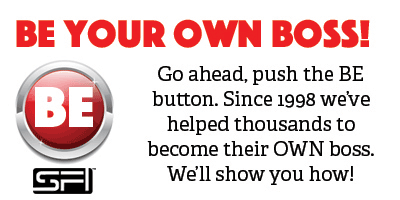
If you are keen to earn income online in 2022, here are some business ideas many experts recommend.
Affiliate Marketing
If you can help some product merchants to advertise their products for a cut of the profits, you are in affiliate marketing. Affiliate marketing is a very simple online business idea really. Just promote products, generate sales and earn commissions from the sales, simple. I guess nearly everyone who can use a computer or smartphone and knows how the internet works can get involved in affiliate marketing to earn commissions. If you are already working online and you have an audience and a good online presence through a blog, podcast, or social media channel, you can monetize this presence with affiliate marketing. Better still, if you have the skills to write product reviews that convert. If you do, your earning potential in affiliate marketing can be much better. If you can’t go it alone in affiliate marketing, it is recommended you join a reputable affiliate program online. Programs like Strong Future International SFI, an affiliate marketing program that is the largest online for selling all shades of products has millions of members working on its programs. The program is FREE and easy to join with no obligations whatsoever.
Social Media Consulting Services
As social media platforms are becoming many and varied with unique and peculiar features on each of them, opening and operating accounts in all them can be hugely tasking for any individual business owner. What to do then? It is best to hire an agency or full-time employee to manage the many social media accounts. This is where a social media consultant becomes imperative to help the business owner free up some valuable time to work on other strategies to grow his business.
If you are a social media consultant, you can help small businesses determine the best tactics, hours, and content for their target audience. You can advise on the best platforms to work depending on the products on sale and the business niche. You can manage the social media accounts to grow the audience and the following. You can effectively help to manage accounts on the most popular platforms like Facebook and Twitter which are about the main business networks mostly because of their special in-house marketing features and huge consumer audiences. More visual platforms like YouTube, Instagram, Pinterest, Tumblr and Snapchat which also have huge consumer audiences require special management to be useful to brands. A good consultant will know how to handle them for excellent results.
Start a Podcast
You can earn money from podcasting if you have the skills and the right equipment. As your podcast grows, you can monetize it by offering paid sponsorship and selling your own products/services. If you are into podcasting, as your listening audience grows, the more you gain their trust. When the trust grows, it increases the likelihood that they will buy what you are offering or endorsing. That is when the money starts coming in. You can easily get into podcasting because you don’t really need expensive or fancy audio equipment to start a podcast. Once you can have the episodes transcribed for easy accessibility and content marketing purposes, you can make a lot of money in podcasting.

Virtual Training
In a pandemic situation as we are now with widespread restrictions on human interaction, virtual training is gaining ascendancy because life must go on. The situation now makes a lot of people to opt for studying online. For this reason, many hitherto offline institutions have moved online. People with marketable skills in specific fields now translate their knowledge into online courses and training and money is being made. If you have a good skill to teach online and you cannot go it alone, you can join online platforms to offer your services for a fee. Presently, many more people are turning to online platforms to learn new skills and access valuable resources. That creates real demand for online training. Be it fitness, digital marketing, SEO, or UI/UX design services, irrespective of whatever niche you’re in, now is the right time to package your knowledge and skills and sell them to people online. You can make money from the fees you charge.
Launch a Clothing Line
You can launch a clothing line and make money online if you know what you are doing. With a few designs and the requisite designing skills, you can get your clothing business off the ground. Just open your own e-commerce store on Shopify and pronto you are in business. If you can use Oberlo, Prettify, Printful or a similar sourcing app, you can quickly set up your own clothing line. These apps can automatically link your store with clothing printers and clothing manufacturers. They also handle every step of the retail fulfillment process for you, giving you the freedom to design and ship a wide variety of parts from scratch. Then you can start making money.
Monetized Blogging
These days, nearly everyone in e-commerce business is into blogging. Many are into blogging to market content which attracts traffic to their stores. People now practically blog about nearly everything on planet earth. So, if you want to start a blog, it is easier to start a blog now than ever before. Your blog can be a great potential source of income if you take steps to monetize it. Once you decide to continuously create good quality content, your blog audience will start to grow provided your blog content has a very high quality that educates, informs or entertains people. Once your blog following starts to grow, you can then begin to make sales on the blog from the traffic it attracts. You can sell many things on your blog including ads spaces. You can quality physical products, digital products, sponsored posts, training, e-books, etc. But, your blog can only be profitable if you are willing and able to put in the work needed to continuously post high quality and valuable content on the blog.
SEO Consulting Services
If you have the technical knowledge and skills for search engine optimization, SEO, you can become SEO professional in consultancy services. This skill simply entails how to get business websites to rank high in Google and knowing how to convert online searchers into customers. Presently, you there are many brands and businesses willing to pay for such professional services. These services are highly technical in nature and may involve editing metadata tags, regularly updating a business blog, or searching for smart keywords to help the business rank high in search engines. A good SEO consultant who knows his trade can work with a solid SEO strategy to change the fortunes of any online business for the better.

Start E-commerce Store
If you have quality products to sell online, you can become an E-commerce Associate ECA in a reputable e-commerce business like Strong Future International SFI. You must however know what sells well, what the best price is for products, and how to make your listings stand out on the platform. Doing so can quickly accelerate your success in the business. E-commerce store is also a business you can build around your personal interests, passion and experience, which makes it fun and even lucrative. If you become E-commerce Associate in SFI, you only have to list your products, and the platform takes care of the rest particularly customer service. You can list your products FREE and you are only required to pay a commission if you make a sale. As an SFI, ECA because you have the advantage of low start-up and maintenance costs, there is virtually no limit to your earning potential once you list your products for sale.
Web Designer and Developer
These days, because many more people are taking their businesses online, that has increased the demand for design, launching and hosting of websites. The demand for web designers and developers has increased tremendously too. To be a web developer, you must have the right technical skills and be able to demonstrate them at any time to convince brand/business owners what you can do for them. Web designers and developers always earn good fees for their services.
Dropshipping Business
In digital marketing parlance, dropshipping is usually referred to as the easiest option to start an e-commerce business. This is because you do not need to even have products of your own to sell and also without having to purchase any products up front. You can simply use dropshipping apps to find thousands of vendor products to sell online. Through dropshipping, you can market products to customers around the world all without investing in warehousing, inventory, customer service, shipping, or manufacturing costs. Quite a low cost business to start really. Once the dropshipper links a buyer to a product merchant, the merchant takes over from there. Once a sale is made, the dropshipper earns his commission. Simple!

























